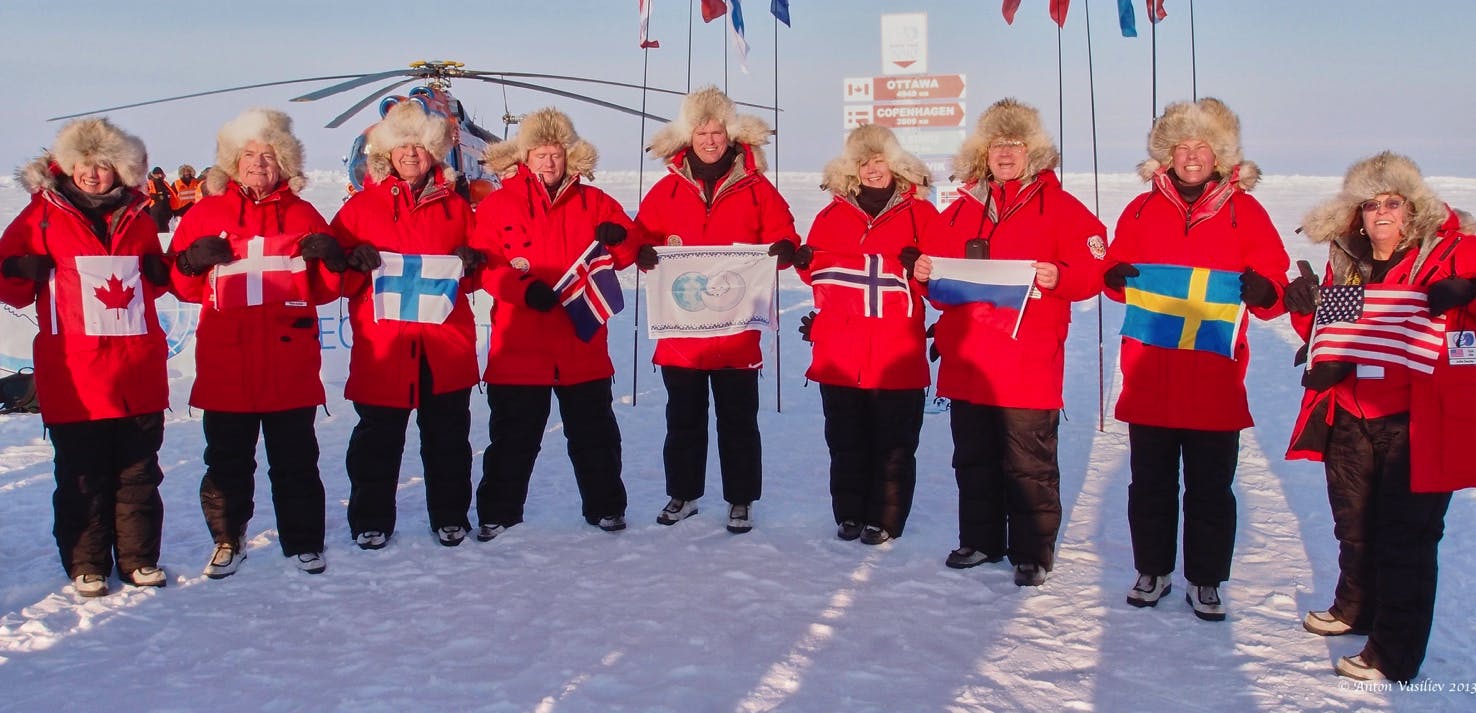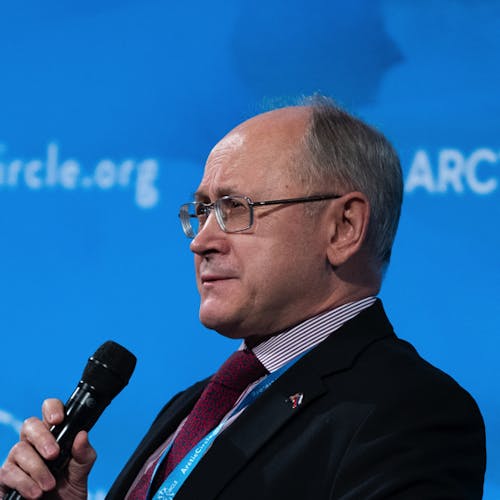2.30 am 10 April 2013. Minus 30 degrees Celcius. All Arctic Council Senior Arctic Officials on the North Pole. Left to right: Sigrid Anna Johnson of Canada, Klavs Holm of Denmark, Hannu Halinen of Finland, Jonas Allansson of Iceland, SAO Chair Gustaf Lind of Sweden, Else Berit Eikeland of Norway, Anton Vasiliev of Russia, Andreas von Uexkull of Sweden, Julia Gourley of the USA.
I conceived of this now famous photo well before our trip which was designed within the framework of an international Arctic conference, organized by the Security Council of the Russian Federation. However, reality exceeded my expectations. The trip turned into an unforgettable adventure. Initially we planned to sleep one night in Nagurskoe in the Franz Josef Land following a flight there from Salekhard, where the conference took place.
However, the weather on the North Pole was forecast to change abruptly from fine to stormy in 5-6 hours. Therefore, we decided not to sleep to catch the good weather, and instead changed into made-to-measure in St-Petersburg red-and-black down polar outfit (a showcase of Russian hospitality) and flew 2 hours on AN-26 from Nagurskoe to Barneo Ice Camp near the North Pole, and from there 15 minutes to the exact point of the North Pole on MI-8 helicopter. That was a clever choice. The night was still sunny and the photo session was very emotional. The excitement was fantastic. Standing on top of the world with all its troubles down under you. The closest point on Earth to God above. We even improvised a football match, finding a football in our helicopter. No one thought about sleeping. Unforgettable.
The photo was supposed to convey the true spirit of international Arctic cooperation, the spirit of camaraderie, friendship, trust, joy of working with each other. A unique group of people, a unique group of countries, a unique region of the world. The North Pole and the Arctic Ocean in the post-Cold-War era that unite, not divide, peoples and countries. The Arctic Council as the key intergovernmental body that assures effective governance of the Arctic: “we can do it”. Satisfaction with a major achievement. A success. And I think it conveys it all. You see genuine emotions, not staged.

